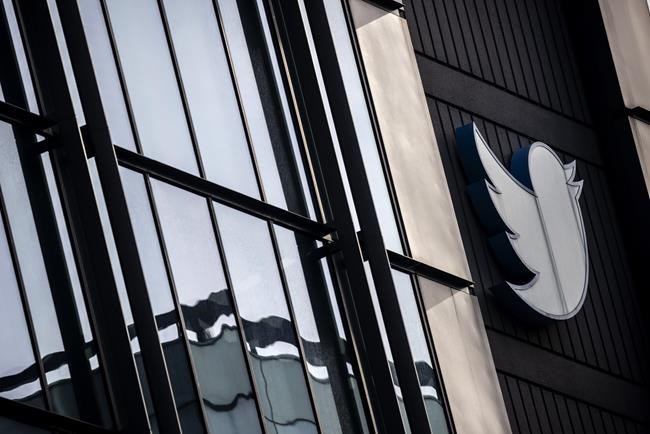Allowing tech companies to apply brazen labels to the social media accounts of credible publications can harm the reputations of news outlets and mislead the public, academics say.
They are concerned that Twitter chief executive Elon Musk's recent move to label social media accounts, including CBC's, as "government-funded" could exact damage because it was done on a whim and is seemingly not rooted in the truth.
"When the platform itself comes along and slaps a label on their official accounts or profiles saying this is a government-funded organization, for a journalistic enterprise, that's a major blow to their reputation," said Brett Caraway, a professor of media economics at the University of Toronto.
"The worst thing that a journalistic enterprise can be accused of is being a government propaganda outlet."
Twitter labelled CBC “government-funded" on Sunday. On Monday evening, Musk later had the label changed to “70% government-funded” and then “69% government-funded."
CBC has since paused its use of Twitter, saying the label is unfair and incorrect because the broadcaster receives public funding through a parliamentary appropriation that is voted upon by all MPs, and its editorial independence is protected in law in the Broadcasting Act.
Musk's succession of labels is "not a serious response," CBC media relations director Leon Mar said in an email Tuesday.
"Journalistic independence is not a game."
Twitter responded to multiple requests for comment about why the label was applied and whether it would be removed or changed with an auto-generated email bearing a poop emoji.
However, its website defines "government-funded media" as "outlets where the government provides some or all of the outlet’s funding and may have varying degrees of government involvement over editorial content." Twitter's policy links to a Wikipedia page listing "publicly funded broadcasters" it said it may use in determining when this label should be applied.
Caraway characterized the label as a form of libel because it conjures up a notion that because a media company receives government or public funding, it must also cede to political demands, which is untrue in the case of public broadcasters such as CBC, NPR and BBC.
Last week, NPR announced it would quit Twitter over the social media company labelling it “state-affiliated media,” a term often associated with outlets controlled by authoritarian regimes.
Twitter later changed it to “government-funded media” and began applying the same label to other publishers including the BBC, which had previously been named as an exception to the "state-affiliated media" label. The BBC's label was later changed to "publicly-funded media."
"It's laudable to try and provide additional context to content for readers on social media, but I feel like the emphasis on institutions like the BBC and CBC and NPR and all of these, it is misguided," Caraway said.
"This isn't where the emphasis actually needs to be."
Instead, he feels more attention should be paid to "the lone wolf content creators that you don't know anything about."
"Like your crazy uncle that's sharing conspiracy theories from some weird website like Freedomeagle.net or something like that, that's where the additional context would be beneficial," Caraway said.
Sara Grimes, the director of the University of Toronto’s Knowledge Media Design Institute, saw the labelling of CBC's account as the latest in a series of "bad and puzzling" decisions Musk has made over the past few months.
She said it's "terrible" to have tech companies applying these labels in an "ad hoc and reactionary way" with no consistency, transparency or apparent rationale.
"Labels like these can be read as factual and accurate, especially when they're coming from a giant tech company heavily engaged in distributing news to millions of people around the world," she said.
"Inaccurate or overly simplified labels, devoid of key contextual information, are at best ambiguous and at worst are themselves a form of misinformation."
Grimes says labels should instead be applied after a factual and transparent evaluation that uses clear and consistent definitions. The labelling process must have the involvement of people with actual knowledge of how media companies operate or Grimes said the usefulness of labels is questionable at best.
She and Caraway agreed pausing the use of Twitter is a good strategy for media companies targeted by Musk's incorrect labels and the departures of advertisers and users turned off by his actions.
Grimes said, "Twitter isn't what it used to be and its ability to share and highlight newsworthy events has crumbled significantly."
This report by The Canadian Press was first published April 19, 2023.
Tara Deschamps, The Canadian Press




